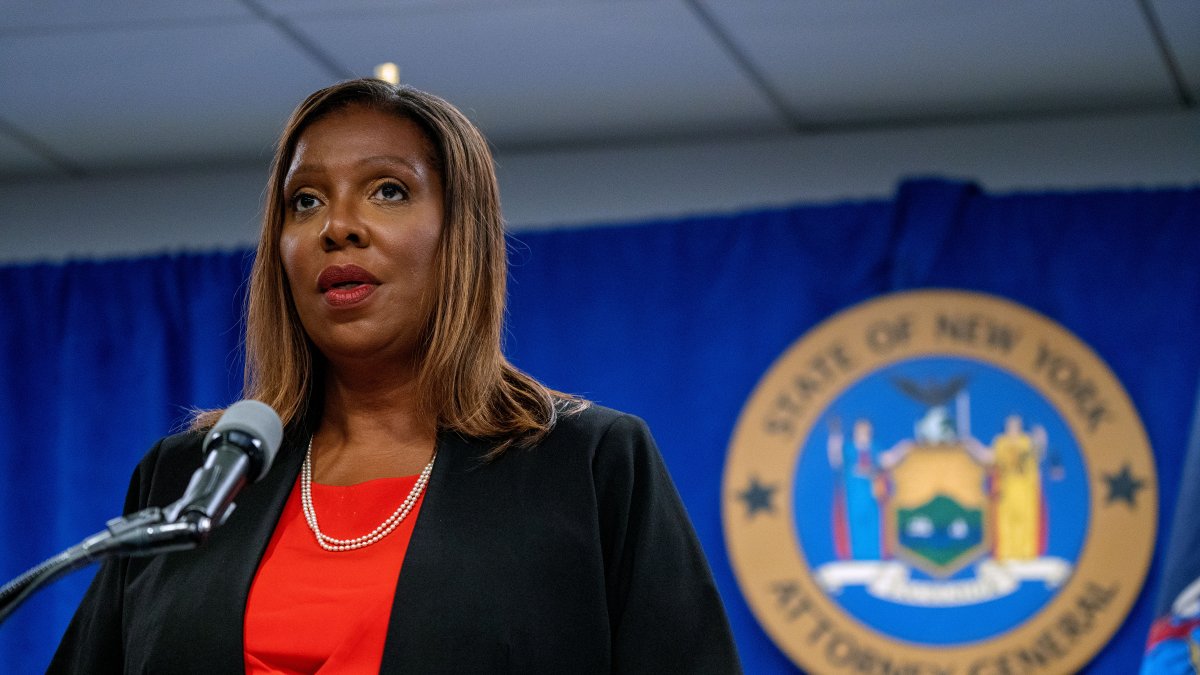New York Attorney General Letitia James issued a guide for state law enforcement agencies to remind them of the rights of tenants to form associations and hold meetings on the property where they live under New York Real Estate Law § 230.
In a memo sent to law enforcement agencies across the state, the Office of the Attorney General (OAG) provided guidance on how to respond to landlords, superintendents, or others who file complaints about tenants or their guests who organize or gather within a building or their common grounds.
Attorney General James warns law enforcement to be cautious to prevent landlords from unintentionally using them to violate tenants’ rights to organize and assemble.
“As New Yorkers grapple with unprecedented rent increases and an increasingly tough rental market, we are seeing some landlords use troubling tactics,” said Attorney General James. “We have seen reports of landlords calling the police to report tenants for gathering and organizing in their own buildings, actions that are within the parameters of the law. All tenants should feel comfortable exercising their right to organize without fear of legal reprisal. Landlords cannot use our law enforcement officers as tools to intimidate and threaten tenants, and my office will work to ensure that local sheriffs and law enforcement departments understand the rights of tenants across the state.” .
In her memo, Attorney General James contends that if the police are called to break up a tenant meeting or remove people who are organizing, the responding officers must have a good understanding of Real Estate Law § 230 and the protections it provides to tenants and their representatives.
James provided the following reminders about tenant organizing:
- Landlords are prohibited from interfering with a tenant’s right to form, join, or participate in the lawful activities of any organization formed to protect tenants’ rights.
- Landlords must not harass, punish, or penalize any tenant for exercising the right to organize.
- Law enforcement, when encountering a gathering of tenants and organizers in a building, may not break up the gathering unless it violates strict prohibitions outlined in the law, such as when the activities are not peaceful.
- Tenants are allowed to communicate with other tenants and widely distribute information about organizing activities.
- Non-tenants, such as organizers and attorneys, may conduct tenant organizing activities on private property at the request of a tenant residing on that property.
- Such tenant organizers may also ask tenants for contact information to address building issues that may be related to issues such as repairs or the landlord’s rent setting policies.
- Tenant gatherings in common areas of a building or property are permitted by law. Items needed for the meeting, such as a table and chairs, can be placed in common areas for the meeting.
- Law enforcement should not make determinations as to whether a meeting is a fire hazard or other determinations outside of their expertise.
- Landlords who use force or attempt to disperse legal tenant gatherings may violate criminal laws, including disorderly conduct, threats, aggravated harassment, or assault. Law enforcement must use their discretion to enforce these and other appropriate criminal laws to preserve the peace when tenants exercise their rights under the Real Estate Law.
–


